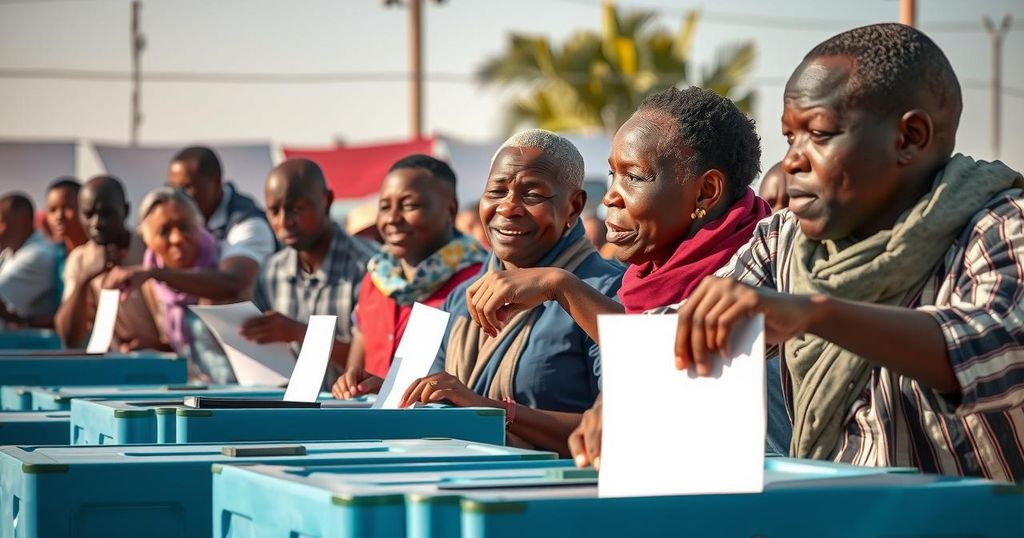Namibia Opposition Party Rejects Election Results, Cites Electoral Malpractices

Namibia’s opposition IPC, led by Panduleni Itula, refuses to acknowledge the recent election results, citing significant logistical issues and alleged electoral malpractices. Voting extended due to ballot shortages and technical malfunctions, while preliminary results show Swapo’s candidate, Netumbo Nandi-Ndaitwah, leading with 48% to Itula’s 30%. The opposition plans to contest the results legally, reflecting growing political tensions in Namibia.
Namibia’s opposition party, the Independent Patriots for Change (IPC), led by presidential candidate Panduleni Itula, has declared it will not recognize the results of the recently conducted general election. This decision follows reports of significant logistical challenges and extended voting periods due to issues such as insufficient ballot papers and malfunctioning technical equipment. In his statement, Itula asserted that there were “glaring and undeniable” electoral malpractices that undermined the integrity of the voting process.
The elections began on Wednesday and faced numerous complications, forcing voting in some areas to extend until Saturday. With approximately three million citizens, nearly half registered to vote, the IPC is contesting the results in court and has urged affected voters to report discrepancies to the police. During the counting process, preliminary results from 10 out of 121 constituencies indicate that Swapo’s candidate, Netumbo Nandi-Ndaitwah, holds 48% of the votes, while Itula has garnered 30%. A candidate must secure more than half of the votes to avoid a run-off election.
The Swapo party, which has governed Namibia since its independence in 1990, is under pressure as its popularity has declined in recent years, notably falling below 60% in the 2019 presidential elections. This trend mirrors challenges faced by liberation movements across the region, including recent electoral losses for South Africa’s African National Congress and Botswana’s Democratic Party. Thus, the current political landscape in Namibia remains fraught with tension and potential legal battles over the election outcomes.
The political situation in Namibia is shaped by its historical context, as it gained independence from South Africa in 1990, with Swapo being the dominant party since then. The IPC, formed in response to growing dissatisfaction with the ruling party, is seeking to challenge Swapo’s longstanding authority in a changing political environment. Recent elections have exposed logistical flaws and raised concerns about electoral integrity, highlighting the pressing need for reforms in Namibia’s electoral processes, particularly as the dissatisfaction with the ruling parties in the region gains momentum.
In conclusion, the IPC’s refusal to acknowledge the election results points to significant concerns regarding electoral integrity in Namibia. As the counting continues, the situation remains tense, with calls for justice through legal channels. With the election results revealing a drop in support for Swapo, the political landscape may be on the brink of change, indicating potential shifts in voter sentiment across the country and the region.
Original Source: www.bbc.co.uk







